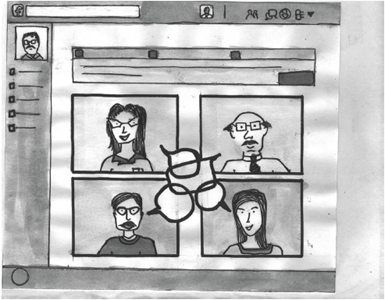Didactitón: A collaborative and creative work of teaching training through the use of Facebook and classroom processes the Hacker and Maker culture
DOI:
https://doi.org/10.31908/grafias.v0i27.1321Keywords:
Practice, Community and Context, collaborative work, collective creation, FacebookAbstract
Didactitón refers to a research process that was conducted with a cluster of first semester teaching students from the school Normal Superior “El Jardín” de Risaralda, in which was made a joint between the use of the most popular social networks, which for this case was Facebook, with the pedagogical training classroom, typical of the Practice: "Family, Community and Context". Therefore the use of the terms "Didacti" related with learning processes, and "Ton" which makes reference to Marathon, meaning an intense consolidation activity of collaborative work and collective creation.
This article, as a result of the research in the Edumática Specialization program at the Universidad Católica de Pereira to determines the impact of Facebook and presentiality, in learning processes of the teaching students, confronts theoretical components to the inputs of the process of research and shows the final production, collaborative and collectively created, which was developed from elements of the Hacker and Maker culture during the Practice "Family, Community and Context". From there it was possible for the teaching students to take a new vision of the collective work, since there was no competition and the final output was from and for the common good "From all and for all."
References
Casacuberta, D. (2011). Narratopedia: ¿Hay secretos en la inteligencia colectiva? Bogotá: Editorial Pontificia Universidad Javeriana.
Levy, S. (1984) Cultura Hacker. Nueva York:, Garden City. Nerraw Manijaime/Doubleday. Piscitelli, A. (2009). Nativos Digitales. Buenos Aires: Santillana.
Piscitelli, A. (2003). Nuevo paradigmas en la sociedad de la información y del c o n o c i m i e n t o . D i s p o n i b l e e n http://www.ilhn.com/datos/archivos/9CharlaNeuquen.html.pdf
Raymond, S (2008). Breve historia de la c u l t u r a H a c k e r. R e c u p e r a d o d e http://www.bibliowed.sindominio.net/telematica/historia-cultura-hacker.html.pdf
SCOPEO (2009). Formación Web 2.0, Monográfico SCOPEO, nº 1. Consultado ( 1 0 / 0 8 / 2 0 1 4 ) e n : http://scopeo.usal.es/images/documentoscopeo/scopeom001.pdf
Selwyn, N (2007) Web 2.0 Applications as alternative environments for informal learning-a critical review. Disponible en http://www.oecd.org/dataoecd/32/3/39458556.pdf
Sennett, R. (2008). El Artesano. Barcelona: Anagrama.


